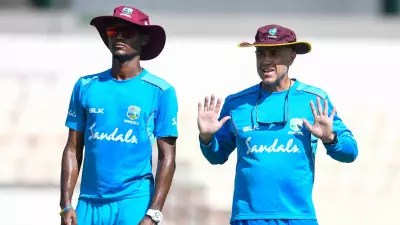
The world of cricket, often celebrated for its sportsmanship and camaraderie, hides a disturbing prejudice that continues to plague players based on their physical stature. The recent experiences of South African captain Temba Bavuma and England's Ben Duckett have brought this uncomfortable truth to the forefront, revealing how height discrimination remains an accepted form of sledging in international cricket.
The Unseen Battle on Cricket Fields
At just 5'3", Temba Bavuma carries more than his team's expectations whenever he walks onto the cricket field. The 35-year-old South African skipper faces a double burden that has followed him since childhood - being Black in a society with a history of racial discrimination, and being constantly reminded of his short stature. His journey from the Black township of Langa in Cape Town to leading the national team is a testament to his resilience against systemic barriers and personal taunts.
During the recent India vs South Africa Test match at Kolkata's Eden Gardens, Bavuma demonstrated his towering talent despite his physical height. Yet, in a disturbing incident caught on stump microphone, Indian players referred to him as "bauna" - Hindi for dwarf - while discussing a DRS decision. This incident occurred in a match where Bavuma outperformed every other batsman, proving that skill has no correlation with height.
A Global Pattern of Height Discrimination
The problem isn't unique to Bavuma. England opener Ben Duckett, standing at 5'7", anticipated similar treatment during the Ashes series in Australia. Before leaving England, Duckett expressed his resignation to the inevitable sledging about his height that has followed him from school playgrounds to international cricket. "I know what they are going to call me. I've had it my whole life," Duckett told former England captain Michael Atherton.
This pattern of height-based discrimination finds its roots in evolutionary psychology, as explained in Tanya Osensky's book 'Shortchanged'. The author notes that sociologists believe the importance of height has evolutionary origins, where larger males were more likely to win fights and attain social dominance. However, this primitive bias has no place in modern sports, where skill, strategy, and mental strength determine success.
Legends Who Defied Height Stereotypes
Cricket history is filled with legendary players who proved that greatness isn't measured in inches. Sunil Gavaskar, Sachin Tendulkar, and Virat Kohli - none were particularly tall, yet they became larger-than-life figures in the sport. Similarly, in football, Diego Maradona, Lionel Messi, and Andres Iniesta demonstrated that physical stature is irrelevant to sporting genius.
Despite their monumental achievements, these athletes often couldn't escape height-related labels. They were frequently called "Little Masters" rather than simply "Masters," highlighting how even in celebration, their height remained a defining characteristic.
Bavuma's own career exemplifies this struggle. In 2016, he became the first Black South African to score a Test hundred, yet jokes about his height persisted. Even when he led South Africa to the World Test Championship title, media coverage often highlighted the height contrast between him and his 6'7" teammate Marco Jansen.
The Language of Discrimination
Osensky's research reveals how language perpetuates height bias. Terms like "looking up" to someone attribute positive characteristics to tall people, while "looking down on" someone carries negative connotations. Common phrases like "short-changed," "small-minded," and "belittling" reinforce this prejudice, while "bigger person" and "making it big" are considered laudatory.
This linguistic bias has seeped into sports culture, where height-based sledging remains largely acceptable. While racial and other forms of discrimination have rightfully been called out, heightism continues unchecked in dressing rooms and on fields worldwide.
Time for Change in Sports Culture
The cases of Bavuma and Duckett highlight the urgent need for cricket and sports in general to evolve beyond primitive prejudices. If age can be considered just a number, why can't height receive the same treatment? Sports organizations and governing bodies need to address this form of discrimination with the same seriousness as other biases.
As Bavuma continues to lead with distinction and score crucial runs for South Africa, his performance should force the cricketing world to reconsider its outdated attitudes. His journey from Langa township to national captaincy proves that talent, determination, and leadership know no height restrictions.
The time has come for sports to truly embrace diversity in all its forms - including physical stature. Until then, athletes like Temba Bavuma will continue fighting battles on two fronts: against the opposition on the field, and against prejudice off it.






